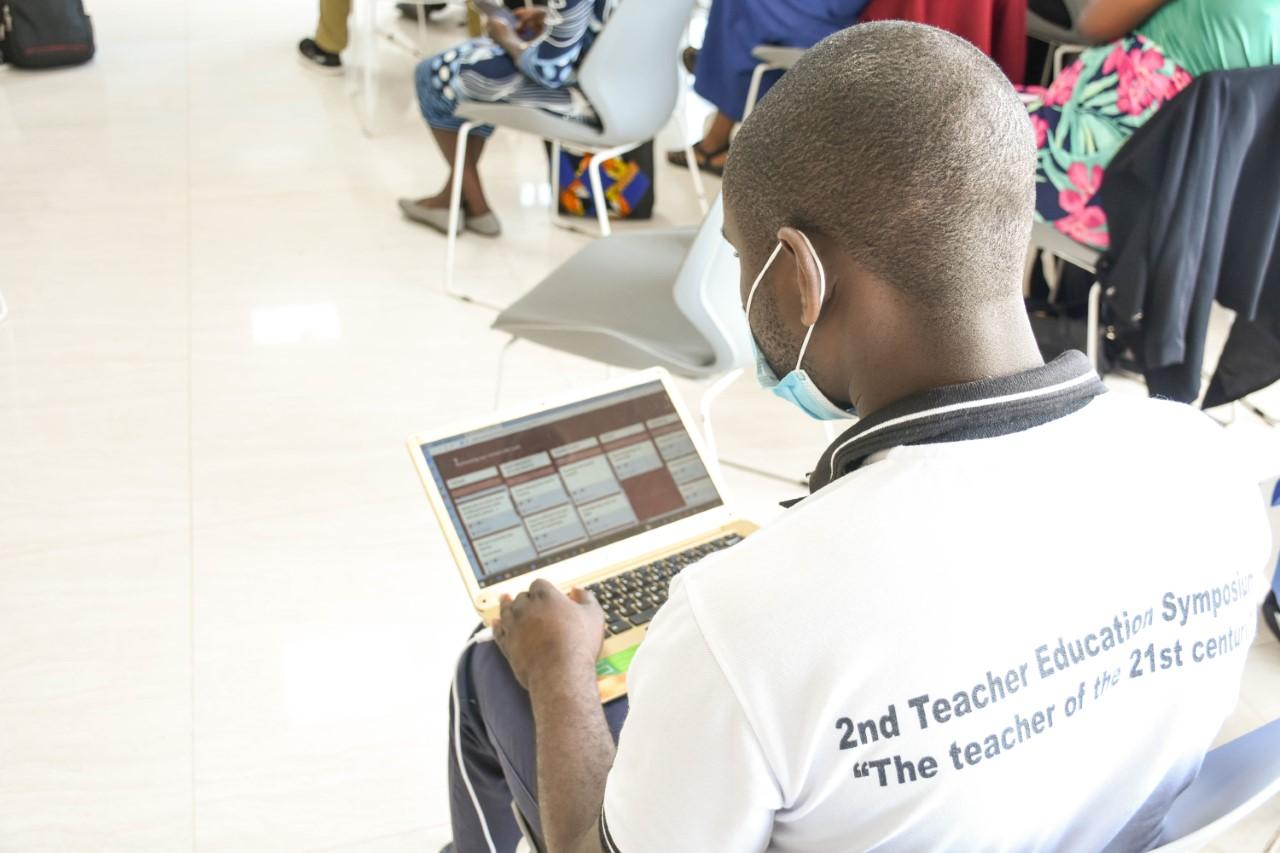National Teachers’ Colleges Step into the Digital Era - Uganda
The COVID-19 pandemic
caused major difficulties on the education system worldwide leading to the
closure of schools to curb the spread of the virus. In Uganda alone, schools
were closed twice (in 2020 and 2021) interrupting learning for about 15 million
students nationwide. Because of this, the Teacher Training and Education project
which is funded by the Belgian and Ugandan Governments, saw the need to adopt
distance education for the continuity of learning during and after the lockdowns.
This led to the introduction of digital learning innovations in the National
Teachers’ Colleges of Muni, Unyama, Kaliro, Mubende and Kabale. The strategy of
digitalizing teacher education in the NTCs, a concept that Enabel has been
supporting in the teacher colleges since 2014, is to foster hybrid education
and prepare colleges for future setbacks that could interrupt learning.
In April 2020, a
distance learning strategy the ‘Teacher
Training Education Sandbox’ that ensures continuity of learning was
introduced in the NTCs. The TTE Sandbox provided a number of ICT tools that
enabled continuous interaction between college management, staff and students
by use of bulk SMS and video conferencing through Zoom during school closures.
Communities of Practice for the staff and ICT Masterclasses for the teacher
trainees were organized to build on NTC lecturers’ and students’ capacities in
using digital channels and tools such as Google Classroom, YouTube, Screencasting,
Podcasting, Zoom and e-books to plan and deliver lessons. To date, these
trainings still run on a monthly basis.
As part of the TTE
Sandbox strategy, NTCs’ teaching staff developed lessons with the support of
the Help Desk and Quality assurance team, which were uploaded on a one-stop
portal for students to access. The one-stop portal was eventually zero-rated
through a partnership with MTN Uganda which enabled students to access learning material for free. What is more, NTC lecturers were taken through the EduHack
series from which they were trained to compare the features of different Learning
Management Systems, create e-learning material and design an online course.
Resulting from these trainings, the next phase will be to roll out the
knowledge and skills of creating e-learning content to the rest of the staff in
the NTCs, secure each college a Learning Management System called Moodle, and
train staff to create their online course in it.
To build on Management
capacities, 150 NTCs’ administrators were trained through a variety of online management courses. These management courses were accessed through Moodle to
help new and existing NTC staff access information and the required skill set
to implement their roles effectively. The courses include: Communication skills;
Human Resource Management; Leadership and Management; Gender; Finance was installed Management; and, Planning and budgeting. Furthermore, an ICT tool ‘Time on Task’
that records staff attendance installed in the NTCs. This monitoring tool
has helped tackle the issue of staff absenteeism and improved human resource
management in the Teacher Colleges by digitalizing and simplifying the teacher attendance system. The attendance tool has also eased records’ keeping and will be adjusted
to record information on the actual activities the NTCs’ staff take part in
while at the colleges.
Concerning
Infrastructure, work has been done on the design and construction of climate responsive
learning facilities with digital needs in mind to support EdTech in the
National Teachers’ Colleges. Classrooms and computer laboratories have been
constructed and renovated to accommodate projects, movable desks and accessible
power sources to facilitate ICT in teaching and learning. More still, computer
labs have been resupplied with ICT equipment and projectors which are being
installed in the colleges.
Currently, NTC lecturers
and students are taking an online course on General Teaching Methods (GTM), which provides up to date interactive
and practical digital resources to help prepare them to teach. This course involves
the use of different media which builds on the teachers’ and
teacher trainees’ ICT skills and has so far been successfully completed by
56% of the NTCs’ total population (2632 out of 4699). Enabel is also piloting the establishment of a digital hub in the NTCs that will play a key role
in harnessing EdTech and benefit NTCs' neighbouring communities by
providing basic ICT training and services.
Enabel has
partnered with Uganda for 21 years and continues
to strive to improve the quality of secondary teacher education as part of its development
initiatives. The move to digitalizing systems in the National Teachers’
Colleges has tremendously changed the face of education and generally
improved the quality of teacher training. With the
digitalization of NTCs, administrators can now remotely manage NTCs effectively, lectures create and conduct interesting and
interactive lessons using digital tools; and equip
their learners with the same skills that will turn them into 21st-century
teachers.
Latest news from this project
No news

